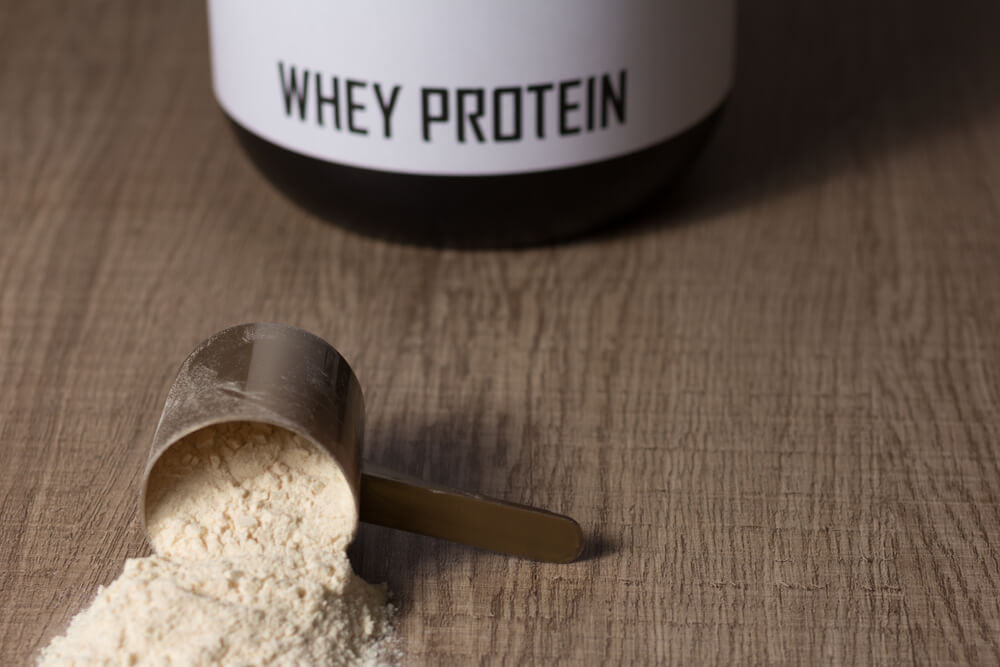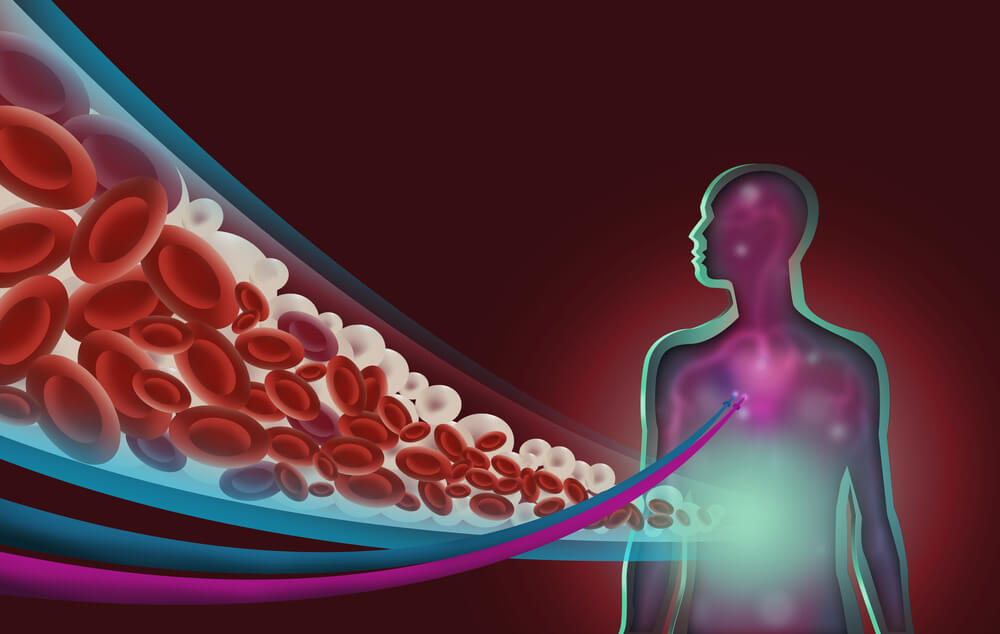
If you workout on a semi-regular basis you’ve probably used, or seen others use protein powder. It’s a quick source of instant protein, which both helps fuel a workout and repair damaged muscle cells. But are there any whey protein dangers?
The Truth Behind Whey Protein
Giant tubs of protein powder can be found in every grocery store, convenience store, and anywhere else health supplements are available. Naturally your body needs protein. And one of the least expensive protein powder options out there is whey protein. This is a favorite protein powder to numerous individuals because it is inexpensive and packs a high protein to low calorie punch.
But are there potential dangers behind it? And if so, what exactly are the whey protein dangers? Here’s everything you need to know about whey protein and how it may impact your health.
Knowing Your Whey Proteins
There are a number of whey protein powder options. So before you decide to purchase one it is a good idea to know the difference between these three.
First, the most common form of whey protein is a whey concentrate.
This kind of powder is about 75 percent protein. It also has more fat and lactose in it than the other two options. The concentrate is the least expensive of the three and is what you’ll usually see in most stores.
The second option is a hydrolyzed whey. This increases the protein percentage up to around 85 percent (it will vary slightly based on the brand, but you’ll usually find the protein amounts right around this range).
This is referred to as a “pre digested” whey protein. This makes it great for absorbing. If you have a sensitive stomach this will be a better option.
It is also good if you take a protein powder drink before bed.
It can be beneficial to have some protein in your system before going to bed as your body will need a protein source to repair damaged muscle tissue.
However, you don’t want a harsh protein that will cause you to have an upset stomach. With hydrolyzed whey that isn’t an issue and you’ll be able to sleep without a rumbling stomach.
The third option is a whey isolate. This increases the protein percentage to 95 percent. As almost all of the powder is dedicated to protein very little of it includes additional nutrients.
If you’re looking to cut and maintain lean muscle mass while removing as much of the calories from secondary sources this might be the best option for you, but you may need to add the additional nutrients through secondary sources.
Lactose Intolerant
If you are lactose intolerant you need to steer clear of this form of protein. That is because whey protein is derived specifically from milk.
What exactly is whey?
When turning milk into cheese the milk will become thicker and turn into curds. There is also a watery element left after. Whey is this watery part.
Most of the fat found in milk is turned into the cheese, so what is left is a liquid packed full of protein with about as minimal a calorie count as you’ll find per gram of protein.
Whey protein doesn’t often advertise itself as a “dairy” protein, in reality it is. And while it doesn’t have the fat and many of the other elements found within milk, if you are allergic to dairy products you will need to steer clear of whey proteins.
Inflammation

For some people whey protein can lead to inflammation. However, inflammation is a necessary part of workout out. When you lift you will damage the muscle tissue.
This in turn will cause the muscles to become inflamed. While you can take some supplements to help reduce the length of this inflammation (such as fish oil) your muscles will still become inflamed.
Plus, while whey protein can increase your level of inflammation it isn’t as bad as other dietary elements, such as carbs. The inflammation your body may experience due to whey protein is minimal at best and you likely won’t identify any real difference between using whey and not using whey.
However, if you find some areas of your body remain inflamed and painful for longer than normal following the inclusion of whey into your diet you should remove it and look for another protein source.
Test Out Your Whey At Home

If you’ve never used whey protein before or you’ve never replaced a meal with whey protein before you’ll want to do this at home to see how your body reacts.
It likely won’t have a significant reaction to the protein at all. However, if you’re accustomed to a hearty meal, replacing it with a protein supplement can leave to increased bowel movements. Always a good idea to know what to expect if you’re heading for the gym.
When first starting off on whey some people may experience headaches, cramping, and fatigue. Often this is more to do with the additional supplements added to the protein.
Some proteins will contain creatine and BCAAs (branch chain amino acids), both of which are helpful with your workout, but if you’re body isn’t accustomed to having these supplements in its system you may have some minor side effects. Don’t worry though, these side effects will go away and you won’t suffer from them long term.
If you continually suffer from bloating, feel gassy, or other side effects continue to linger you will want to stop taking the supplement and you should visit your doctor.
When these symptoms continue it often is because you are actually lactose intolerant, so having a dietitian perform an allergy test on you is a good idea. There are plenty of other proteins out there that don’t include milk-based products, so while whey is easy and inexpensive, you do have alternatives.
It is important to check out the labeling prior to purchasing the whey powder so you now exactly what is in it and what kind of additional supplements might be included.
Can It Damage Your Kidneys?
You’ve probably heard this floated around a bit. That if you have “too much” protein in your diet you’ll end up harming your kidneys.
But is this true?
Well first, if you eat a high-protein diet it will cause your kidneys to filter more blood than typical. However, this is a natural occurrence within your body and it doesn’t alter how the body acts. In fact, according to Healthline (2018)there is absolutely no evidence supporting this idea.
In fact, during a recent study, 74 individuals were placed on a high protein diet and none of them demonstrated any kind of kidney problems or kidney alterations at any time of the study or following the study.
With all of this said, if you currently suffer from a kidney condition it is a good idea to consult your doctor prior to starting any kind of high protein diet.
Additionally, if you have any other kind of current health conditions it is always a good idea to talk with your doctor prior to starting any new workout or dietary regimen (including supplementation).
But What About Liver Damage?
So maybe the people who told you whey protein and high protein diets can cause kidney damage actually meant liver damage. People often repeat what they hear and sometimes some information can become skewed a bit.
Could they have meant the liver instead of kidneys?
No, they could not have because a high protein or whey protein diet does not damage the liver. In many ways it actually helps it. This is because fatty tissue can become stuck within the liver.
Obese individuals often have a very fatty liver, which is just one of the reasons they suffer from so many health problems.
However, according to a study published in the Journal of the International Society of Sports Nutrition (2004), 11 obese women took 60 grams of whey protein a day and, at the conclusion of a four week period, the women reduced the fatty tissue within their livers by an average of 21%.
If you suffer from cirrhosis, you will want to talk to your doctor prior to starting a high protein diet, including a diet that heavily relies on whey protein. There can be some complications if you have a current liver disorder, so it’s always best to make sure with your primary healthcare physician.
Possible Osteoporosis Connections?

Your bones are primarily made up of calcium and protein. So having an influx of protein into your body is always a good idea.
However, is too much protein a problem?
Some might say that too much protein may cause your bones to develop small bits of calcified bone that sticks to regular bone, which can cause some health problems such as osteoporosis.
The basis of this theory revolves around the body producing a more acidic urine when on a high protein diet. To offset this, the body would then go and release calcium from within the bones to neutralize the acidic level within the urine.
This, in theory, would potentially lead to calcium stones in the urinary tract and the clinging of calcium onto bones throughout the body as well.
While the theory has some credence studies suggest this is not exactly how the body reacts to a high protein diet. According to the European Academy of Nutritional Sciences (2012) instead of releasing calcium in order to make up for the higher acidic level in the urine the body increasing the amount of calcium absorption throughout the gut.
As the publication indicates, following the completion of 36 different studies there wasn’t a single case of someone developing poor bone health due to a high protein diet.
Realistically, individuals who are aging and who are at a greater risk of losing bone density should likely increase the amount of protein they consume. This will help offset the loss of calcium and maintain healthy, strong bones.
Always Read The Labeling

Not all whey proteins are created equal. Different proteins will have higher or lower levels of calories per gram of protein. You’ll also find some have higher levels of cholesterol or sodium.
If you’re focusing on bulking up and want to put on size you will want to focus on the cholesterol levels. You don’t want to overdo it, so making the necessary adjustments and selecting the right kind of whey protein powder for you is important.
Additionally, there are other kinds of supplements often added into whey protein powders. Sometimes you will find a small amount of creatine added into the supplement. If you are looking to control your level of creatine intake this is something you should keep in mind.
If one kind of whey powder causes you to use the bathroom more than another it might be due to the added supplements and not because of the whey itself.
Some whey powders will also have BCAAs. These branch chain amino acids are great for helping your body quickly absorb the protein and use it to rebuild damaged muscle tissues.
If you’re looking to add BCAAs to your diet though you’ll likely still want to pick up a separate supplement to add it to your diet as the amount found within the protein powder likely isn’t as much as you’d like.
Still, knowing what is found inside the powder will help you avoid taking more than you’d like.
In Conclusion
There are a number of “dangers” floating around with regard to whey protein and high protein diets in general. People will here one thing through the grapevine and then pass it off as fact. However, research shows there is no real danger with whey consumption.
Whey is an excellent source of protein and it packs a solid punch for the amount of calories found per gram of protein.
While it is always a good idea to talk with your doctor if you suffer from any kind of current health conditions (especially with your liver or kidneys), and you should avoid whey if you’re allergic to dairy, whey protein in general is perfectly healthy. It’s also an affordable possible addition to your dietary regimen.
-Terry Asher
Terry Asher
Latest posts by Terry Asher (see all)
- Better Family – Product Review Liquid Daily 2 oz - Dec 16, 2024
- Post-Workout Recovery: The Key to Optimal Performance - Nov 25, 2024
- Pre-Workout Supplements – Everything You Need To Know - Nov 18, 2024












[…] Read The Entire Article By Terry Asher Here. […]
[…] post Whey Protein Dangers appeared first on Gym […]
Great and informative post.
The biggest thing people have to understand is protein powders are just supplements. They don’t replace whole foods.
[…] Source link […]
I didn’t know about these things, but I am not taking whey protein right now, I am preferring to take my protein from the food sources as much as possible, not from the supplements, but thanks for mentioning all these things here in your article, I loved your work.
[…] post Whey Protein Dangers appeared first on Gym […]
[…] isn’t rare to see someone make a direct pivot from whey protein to rice protein, for this reason. In many ways, rice protein can be considered to be a green […]
[…] isn’t rare to see someone make a direct pivot from whey protein to rice protein, for this reason. In many ways, rice protein can be considered to be a green […]